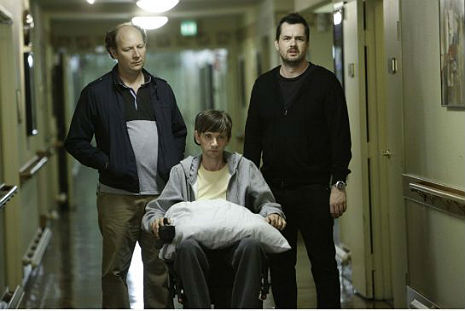
This is a guest post from Hal Martin, which is not his real name. Legit returns for its second series this evening on the FXX network
returns for its second series this evening on the FXX network
A new series of Legit is starting tonight. In it, comedian Jim (played by real-life comedian Jim Jefferies) looks after a severely disabled young man named Billy (DJ Qualls) in a wheelchair, whilst both live in Los Angeles with Steve (Dan Bakkedahl), Billy’s divorced brother. If you haven’t seen the first series, I would advise you all to catch up with it, then start watching the second series. And here’s why.
I was a caregiver up until recently; I stopped because the pay is lousy and the hours terrible. For six months in 2013, April-October, I had the extreme pleasure, and extreme displeasure, of working with a man of 30 named Mark who was permanently consigned to a wheelchair; feet tied down because of spasms, couldn’t feed himself, the whole tragic lot. Not going to go into what was wrong with him; suffice to say, he’d received injuries as a child that had left him wealthy from a huge settlement paid out when he received them. He basically couldn’t wipe his own backside, but was still amiable, had a decent sense of humor, could have a beer (or two) and a conversation with you, and was pretty laid back. I very much enjoyed, and loathed, working with him, for reasons that will become apparent.
But I’m getting ahead of myself. I got a call from a caregiver employment agency I had registered with a few weeks before to ask if I would start work that night, Friday night, 6pm, live-in (you literally live in the client’s home 24/7, normally four or five days a week), straight through until the next Saturday morning, seven days straight, when they would have another weekend replacement ready. My hours after that would be 10am Monday morning to 10am Saturday morning. I had been looking for a live-in gig so I said sure, yeah, and they assured me they were my best pal and I was the best man for the job, and I said yeah, right, whatever.
I have found out, in the caregiving world, that if you get a call for a huge case the same day it starts, or with very little notice, they are just trying to scramble to find somebody to work it. They get a big commission for an employee working it (stealing 66% of what they are paid for the employee working, in my last rip-off gig), and don’t give a damn who does the job. Caregiving is a very sexist industry for men, and it’s much easier to find work if you are a woman, so I considered myself lucky I had gotten the gig I wanted so quickly. Not that I really wanted to work 24/7 five days a week in somebody else’s house, but, well, you know what I mean.
Anyway. I drove the 25 miles to the gig from my apartment in Chicago, and found myself in a wealthy, relatively isolated suburb, marveling at the silent, sterile, empty, beautifully kept street, far from the madding city crowd. I rang the doorbell, and the door was answered by a young Ugandan caregiver guy (young African men are big on caregiving – it’s in their family cultural tradition) named Benon, eyes red, agitated, clearly stoned out of his face. I was walking into a gig in total disarray. Mark had fired his now-gone housekeeper minutes earlier, and had been having a shouting match between himself, his housekeeper (whom he accused of spying on him for the company, which she was, but that’s another story), and the caregiver I was replacing, who had been fired for neglect of his disabled charge.
Benon was babbling at me, asking me to work four days so he could work three, and blah blah blah, and I just nodded and said yeah, right, whatever, having no intention whatsoever of doing this, and annoyed I had been thrust into the middle of such a volatile situation where smiling diplomacy was the key. I introduced myself to Mark and went through into the kitchen to talk about the situation to Benon. When he told me he was from Uganda I actually tried to talk to him about some films by Ramon Film Productions, a burgeoning Ugandan film production company, to distract him and calm him down, get him talking about other, less serious things, and he, thankfully, left shortly afterwards. He’d left a shitload of stuff for me to do, and I was pissed at this, but I just told Mark to call on me if he needed me and got down to what needed to be done.
I did a couple of loads of laundry and folded them, going into Mark’s bedroom to put them away. Instantly I saw several bra and panties sets hanging off a large mirror and I thought hmmm, got a live one here, scalps, bit fratboyish, but good on him, he’s still got a sex drive, not letting him be in that wheelchair stop him. I didn’t know where any of his clothes went, so had to dig through drawers and closets, and I uncovered a few Girls Gone Wild DVDs, several featuring voluptuous black women. I shrugged and put his underwear away in the drawer with the rest of the underwear there. No concern of mine, and I could only imagine how oddly awkward it would be to know your caregiver would know your taste in porn and such because you knew they would know about and see this stuff. But I also reasoned well, in his situation, reliant on other people for help, he wouldn’t have any choice anyway, which sucked in the dignity stakes but there was nothing that could be done about it. And I’m telling you – and this is absolutely true (as is this whole story, except the names) – the first fucking thing I thought about when I saw those bras and panties and DVDs was Jim Jefferies.
Now, there is a reason for this. I wasn’t thinking about him wearing the stuff, obviously – leopardskin thongs would probably not look too good on him. The reason I thought about him was because he does an amazing, heartbreaking half-hour monologue in his set, captured on his DVD Alcoholocaust from 2010, about taking a disabled 31-year-old virgin friend of his that he has known since childhood to a whorehouse. My life has turned into a Jim Jefferies sketch, I genuinely thought, and I ruefully chuckled at the irony. I have met the amiable and hilarious comedian a couple of times in Chicago, including having a drink with him after he did that whorehouse sketch a few years back, and the symmetry did not escape me for one second. But there was a level of secret poignancy there, too. Here was this tangled-limbs helpless man, with sexual desires, young, virile to a point, but unable to go out and satisfy them himself. So he made do with pornography. I idly wondered if he had even had sex.
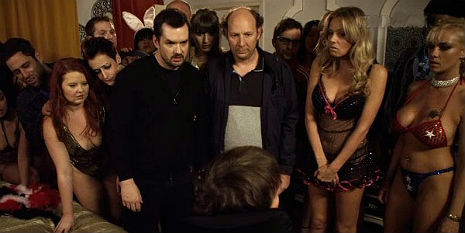
As it turns out, the answer to that question was yes; his father had taken him to a whorehouse when he was 21. I learned this fact when, after a couple of weeks of getting to know Mark and test out his parameters, I showed him the very Jim Jefferies monologue (“It’s so nice to be a disabled sex puppeteer!”) just discussed, which actually made me cry the first time I saw it being performed live. I thought Mark might appreciate it and he did, and told me why. It was incredible – here I was having a late-night beer with this guy, and I had just shown him something that he could relate to in an incredibly intimate way; and not one other comic on the planet could have done this. Once I jokingly mentioned being in need of a visit to a hooker myself and Mark fixed me with a wicked grin and said to me in a low, serious voice: “I can arrange that.” And he could, but didn’t (I didn’t really want it); he had done the same thing for another caregiver, apparently. He certainly loved when I took him out to a Twin Peaks restaurant and he would comment knowledgeably on the booties of the young women working there as I fed him his ice-cold beer.
I hooked up his Mac to his huge-screen TV in the living room and we watched Rudy Ray Moore and Richard Pryor stand-up, and blaxploitation films, and such. We had such fun nights, me feeding him chips as he sat and sipped his beer (he liked Bud, no real taste in beers!) or Mike’s Hard Lemonade from a straw with the bottle in his chair’s cup holder (Mark’s was a $40,000 top-of-the-range model; I used to jokingly call him “Robocop”; the thing could stand him up and everything if he needed to pee, saving him some of the indignity of having to have me do that for him).
A few years before I met him, Mark had visited a ghetto massage parlor for a happy ending. There he had met a black hooker named Sandra, a real piece of work, like some skanky bottom bitch from an Iceberg Slim book. She had been prosecuted for drug dealing, and had even been involved in a scandal involving a politician in the massage parlor; I saw the stories and her mugshot online. Well, she had seen an easy trick, an easy mark in Mark if you will, and had plied her snake-oil charms on him. He had fallen in love with Sandra and gotten married to her, and she, of course, had bled–was bleeding–him dry. First I heard of her was the case notes emailed to me the day I started. All they said was that he had a “girlfriend” and they had a supervised-by-the-caregiver “date” once a week for a couple of hours at a place to be specified each week. I thought that was cute and poignant, in a naïve way, cos I had never met her, and thought it was cool that he was trying to maintain as normal a life as he could under difficult circumstances.
And just how difficult the circumstances were became apparent the minute I met his “girlfriend” for the first time. I had by that point been briefed by his case worker on whom she was and sort of knew what to expect, but she still turned my stomach. 35, dripping crap bling, rail-thin, probably deep into drugs, instantly radiating bad electricity and I did not like her the minute I laid eyes on her. She had one tattoo on her neck from the old movie Dead Presidents of a guy wielding two guns, and another one on her right bicep of a black rose. Above the rose it said “LOVED BY FEW” and below it said “HATED BY MANY,” which may tell you something. The first time I met her she was dressed like a teenager in tight clothes, belly on display, and had on fake gold earrings that said, in letters 1.5 inches high, “TRUST NO BITCH.” How appropriate. “You can’t even make this shit up,” I thought “Mark, if you could only see what I see, man, it’s right in front of your eyes!” But of course I said nothing, as I had just started the job, and I just… watched.
This saga continues after the jump…






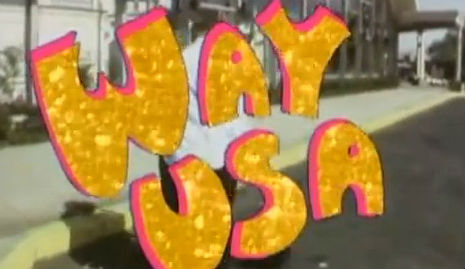



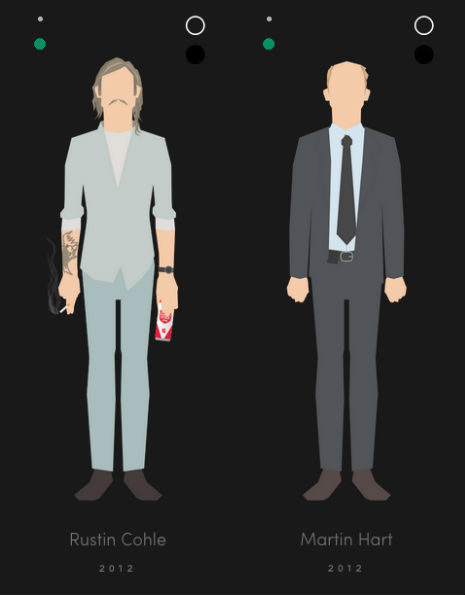



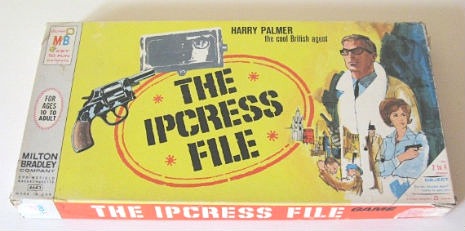
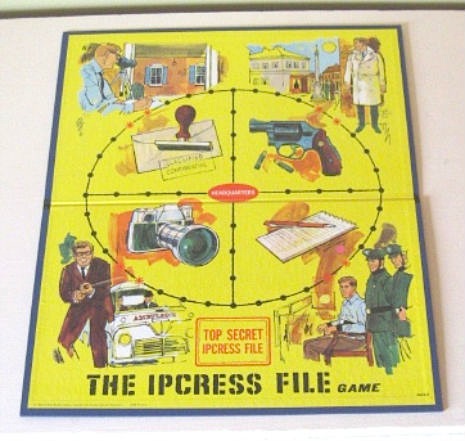
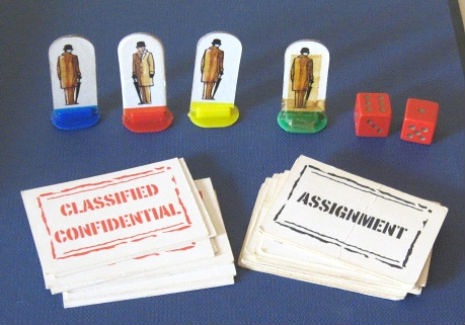

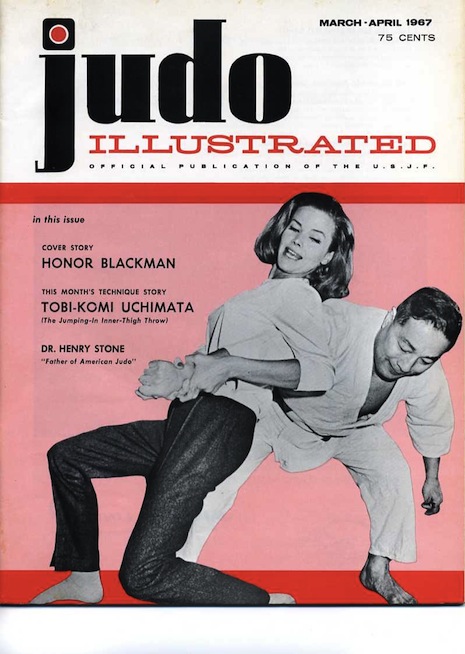
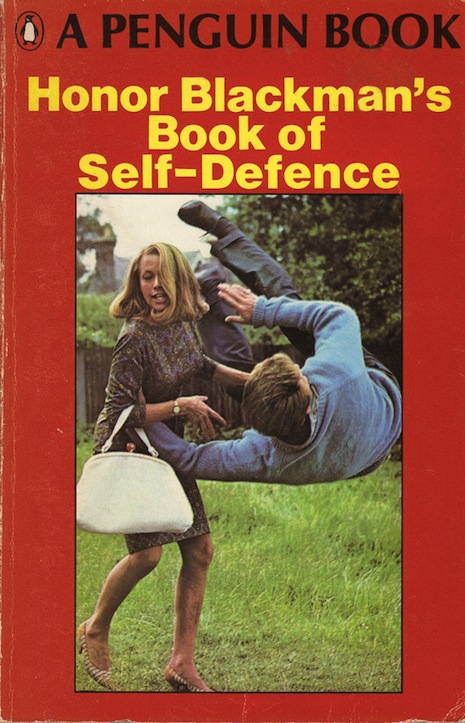
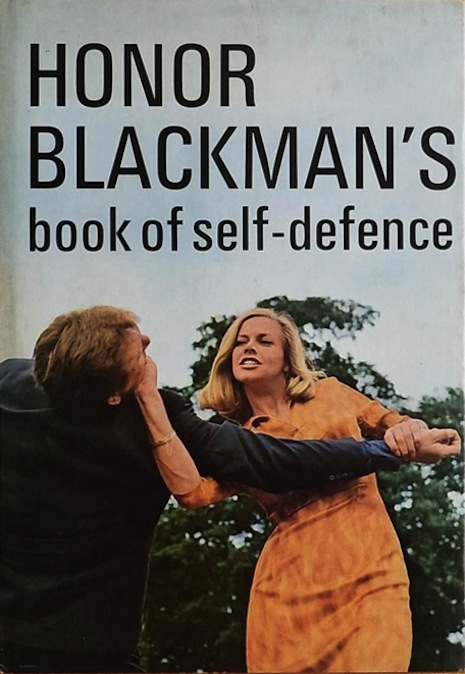
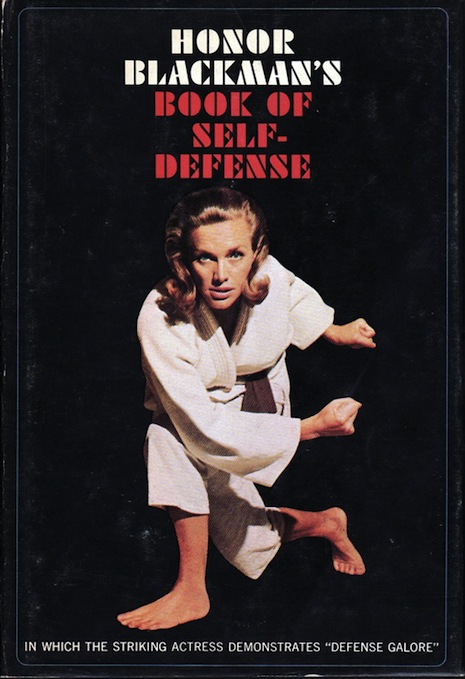
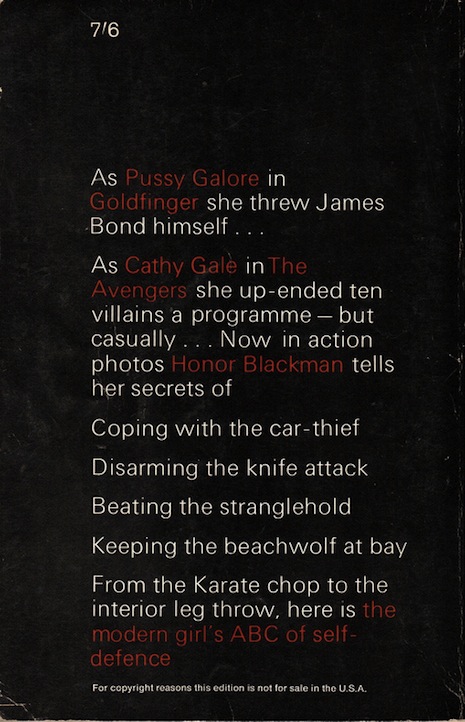
.jpg)





